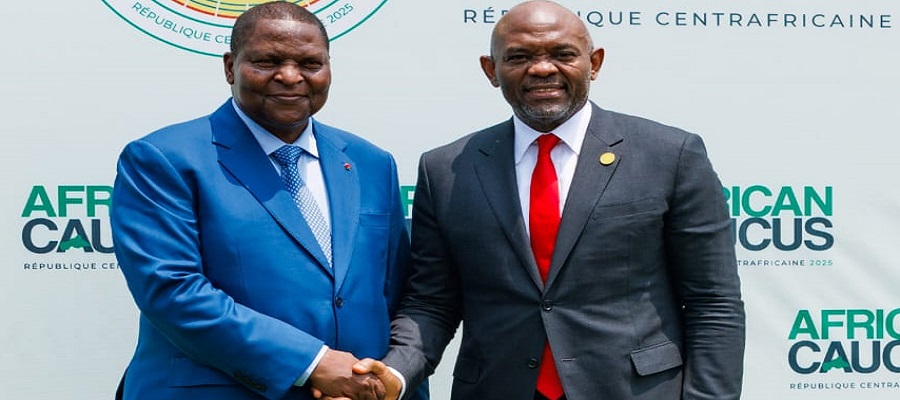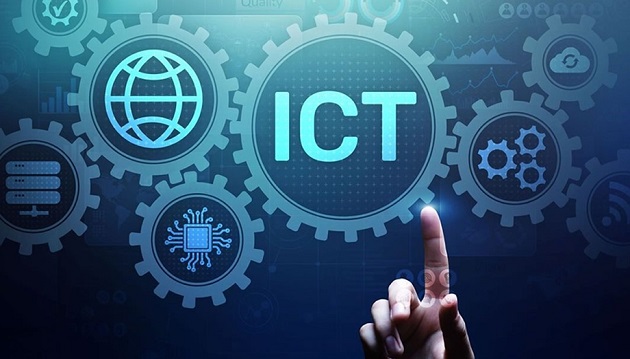General News
AfDB, ADEA, Launch 2014 Education Research in Africa Award

Association for the Development of Education in Africa (ADEA) and the African Development Institute (ADI) of the African Development Bank (AfDB), with financial support from the Korea-Africa Economic Cooperation (KOAFEC) has launched this year’s Education Research in Africa Award (ERAA).
The Award aims to promote high quality education research, produced by African universities, research centres and research networks. It is awarded to four categories of researchers or institutions: the best emerging researcher, the best accomplished researcher, the outstanding mentor of educational researchers, and the best enabling institutional environment for education research.
The Award is organized by the Association for the Development of Education in Africa (ADEA) and the African Development Institute (ADI) of the African Development Bank (AfDB), with financial support from the Korea-Africa Economic Cooperation (KOAFEC).
The inaugural edition of ERAA was launched in 2012. For the 3rd and 4th editions of the Award (2014 and 2015), research in the following thematic fields will receive special attention: technical and vocational skills development (TVSD); early childhood development (ECD); information and communication technology (ICT); science, technology and innovation (STI); gender issues; special education needs; teacher training and the teaching profession.
The organizing committee encourages women to participate in the 2014 and 2015 editions.
The terms and conditions of participation in the competition are available on line.
Research on education is crucial for African education systems to function well. It provides decision-makers with the information they need to orient policy, conduct reform and enhance the quality, equity, relevance and efficiency of their education and training systems.
In spite of this, education research in Africa remains insufficient and underused. Among the main factors explaining this are the inadequate institutional environment for education research, and the persisting weak involvement of higher education in the policy-making process.
The objectives of the Education Research in Africa Award are:
-to strengthen the link between education research and education policy-making and practice in Africa;
-to encourage and support researchers based in Africa and their organizations to produce and disseminate rigorous and relevant research that stimulates innovative policy-making for Africa;
-to facilitate the interaction between researchers and policy-makers in order to promote the systematic use of research findings in the design, formulation, implementation and evaluation of education policies;
ERAA ultimately seeks the institutionalization of a culture of quality research that contributes both to informed decision-making and to the effective implementation of promising reforms and practices.
It is part of a wider framework seeking to strengthen education research capacities in Africa, which will be implemented in the next few years.
The juries for the Award are made up of African and Africanist researchers and education specialists working in universities, research centers and research organizations based in Africa and in other regions of the world.
General News
Bank Staff Arraigned for Allegedly Defrauding Customer of N423m

Abiodun Maccarthy, former bank employee, has been arraigned before Justice Mojisola Dada of the Special Offences Court sitting in Ikeja, Lagos, over an alleged ₦423 million fraud involving a customer’s fixed deposit investment.

Maccarthy was brought before the court by the Economic and Financial Crimes Commission (EFCC) on Thursday, July 31, 2025.
He faces a four-count charge bordering on stealing and forgery, offences said to be in violation of Sections 278 and 361(1) of the Criminal Law of Lagos State, 2011.
According to a statement by Dele Oyewale, spokesperson, EFCC, the defendant allegedly converted ₦423 million out of a ₦650 million deposit made in 2018 by a client, Great Endurance Bureau De Change, for a fixed deposit investment.
The funds were reportedly diverted for his personal use while he was still in the bank’s employ.
To conceal the alleged fraud, Maccarthy was said to have forged a fixed deposit investment certificate bearing slip number 332540, which he issued to the client as proof of the transaction.
One of the counts reads: “Abiodun Maccarthy, sometime in 2018 at Lagos, within the jurisdiction of this Honourable Court, dishonestly converted to your own use the sum of ₦423,000,000.00 (Four Hundred and Twenty-Three Million Naira), money which forms part of ₦650,000,000.00 (Six Hundred and Fifty Million Naira) paid to you by Great Endurance Bureau De Change for fixed deposit investment while you were in the bank’s employ.”
Another count adds that he “with intent to defraud, forged a fixed deposit investment certificate with slip no. 332540 and issued same to Great Endurance Bureau De Change as evidence of investment.”
Maccarthy pleaded not guilty to all the charges.
Following his plea, B. M. Isah, prosecution counsel requested a trial date and urged the court to remand the defendant in a Correctional Centre.
Justice Dada granted the request and adjourned the case until October 22, 2025, while ordering that Maccarthy be remanded in custody.
General News
Tony Elumelu Lists 3 Things Africa must do to Bridge Infrastructure Gap

Tony Elumelu, group chairman of Heirs Holdings and UBA, has listed strengthening fiscal capacity, driving operational efficiency, and unlocking innovative financing as three key things Africa must do to truly rise and bridge its infrastructure gap.

L-r: Faustin-Archange Touadéra, president, Central African Republic; and Mr. Tony Elumelu, group chair, UBA and Heirs Holdings and Founder, Tony Elumelu Foundation.
Elumelu, also founder of The Tony Elumelu Foundation, urged Africa to enable the private sector to co-lead infrastructure development.
He stated all these in his keynote address at the African Caucus meeting held in Bangui, Central African Republic.
The meeting was themed, ‘Resilient Infrastructure, Human Capital, and Green Assets’.
Elumelu highlighted that across Africa, there is a deep and persistent infrastructure divide.
“From roads to ports, power to internet connectivity, we lag behind. We cannot achieve prosperity without the foundations of modern development. Without addressing these gaps, we cannot unlock the growth and prosperity our people deserve,” he said.
He emphasised that energy access is the most critical enabler or barrier to Africa’s progress, pointing out that up to 70% of Africans still lack access to electricity.
“My home country, Nigeria, generates less than 7,000 megawatts for over 200 million people.
“If we are to industrialise, create jobs, and participate meaningfully in the global AI revolution, we must invest aggressively in energy from renewables to cleaner gas-based solutions. Imagine what Nigeria’s economy could become with 100,000 megawatts of reliable, affordable energy. That is the scale of transformation we need”, he said.
Elumelu called for a stronger role for the private sector in infrastructure delivery, citing the work of Transcorp and Heirs Energies as an example of how private capital can address public challenges.
“We are generating power, exporting it through the West African Power Pool, and using gas from our oil operations to power our plants. This is Africapitalism in action,” he said.
Africapitalism, he explained, is the belief that Africa’s private sector must lead in driving economic transformation through long-term investments that generate both economic and social returns.
But for Africapitalism to succeed, he said, strong public-private partnerships are essential.
“Governments must create the right environment. The private sector must bring capital and innovation. And our development partners must support Africa’s realities – including recognising gas as a viable transition fuel on our path to clean energy”, he added.
On Africa’s human capital, Elumelu underscored that no resource is more valuable than the continent’s people especially its youth.
“Africa is the youngest continent on earth, with over 60% of our population under 35. This presents both our greatest asset or our greatest risk,” he said. “If empowered, our youth can transform Africa. If neglected, they can become a source of instability.”
Through the Tony Elumelu Foundation, he said, over 24,000 young entrepreneurs across all 54 African countries have been empowered with non-refundable seed capital of USD5,000 each.
The foundation has also trained 1.5 million youths and catalysed 1.2 million jobs. “These entrepreneurs are creating jobs, building businesses, and changing lives,” he noted.
To conclude his address, Elumelu delivered three powerful messages.
“Africa’s development is our responsibility. No one else will do it for us. Africa’s future is in our hands. No one will build this continent for us. We must lead,” he said. “Power is everything. No industrial revolution can happen without electricity. We must prioritise energy. Without power, there can be no progress.”
And finally, “We must invest in our youth. They are not just our future, they are our present.”
He commended the growing focus of global institutions on Africa, referencing his role on the IMF Advisory Council on Entrepreneurship and Growth and expressing optimism about the renewed emphasis on job creation as a path to sustainable development.
He also praised the World Bank’s ‘Mission 300’ initiative led by President Ajay Banga, which aims to connect 300 million Africans to electricity
“Africa is ready,” Elumelu declared. “Let’s seize this moment and build the prosperous, empowered continent our people deserve”.
General News
Babcock VC Unveils New Horizons’ N1.5Bn ICT Centre

Prof. Ademola Tayo, the Vice Chancellor, Babcock University, has unveiled a 2,000-seater capacity ICT Centre, built and equipped with modern ICT facilities by New Horizons, a foremost ICT Training Institute.

The three-storey building has six classrooms in each floor that can accommodate a minimum of 50 students in a class, including seat-outs, offices and halls that are fully equipped with flat-screen computers and modern ICT facilities that cut across Artificial Intelligence (AI), Robotics, Internet of Things (IoTs), among others.
Speaking at the unveiling, which marks part of the university’s 23rd convocation activities, the Vice Chancellor thanked New Horizons for the donation of the facility to the university community, which he said, would boost learning of new ICT skills, including AI.
“The university has been in collaboration with New Horizons for the training of our students in ICT certification courses. The reason why our students are doing very well in their studies is because of the digital literacy skills that New Horizon is offering our students. Every student from level-one takes ICT certification courses offered by New Horizon and that has helped the students to excel in their studies,” the Vice Chancellor said.
Mr. Tim Akano, CEO, New Horizons Nigeria, said: “We are not unveiling the building alone. We are also unveiling the resources inside the building. We brought in customized all-in-one systems, including some equipment for Robotics and AI. We also made provision for a garden and we are dedicating the garden to the five principal officers of the university. Each of them will plant a symbolic lemon tree that signifies health, prosperity, fidelity, cleansing, longevity, protection and love.”

 Telecom3 days ago
Telecom3 days agoMTN Mulls AI Tech to Protect Infrastructure as Cable Cuts Hit 13,000 in 18 Months

 E-Financial2 days ago
E-Financial2 days agoEcobank Sends Important Notice for Customers

 E-Financial3 days ago
E-Financial3 days agoBanks Reopen Naira Card Payments for International Tuition Fees

 News3 days ago
News3 days agoYahoo Mail Halts Free Storage Service, Caps at 20GB

 E-Financial3 days ago
E-Financial3 days agoSafaricom, PayPal Collaborate to Link Mobile Money with Online Payments

 E-Business3 days ago
E-Business3 days agoAttackers Target Employees with Fake HR Updates

 Broadcasting3 days ago
Broadcasting3 days agoHow AI Agents Will Revolutionise Industries, Boost Productivity, and Cut Costs

 News3 days ago
News3 days agoCAC to Delist 100,000 Dormant Firms After 90-Day Compliance Window























